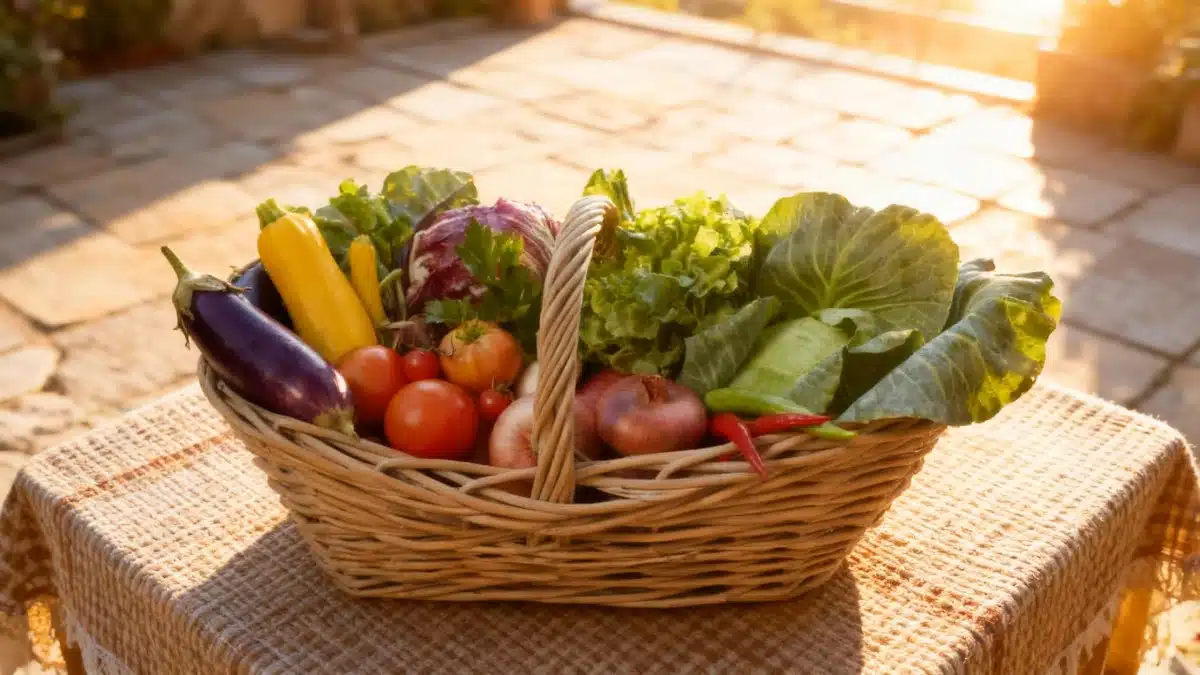Ever found yourself torn between organic and regular veggies in the supermarket, basket in hand, scanning the greens like a top-secret agent? You’re not alone! But did you know that among all vegetables, there’s one true champion of pesticide contamination, and it’s already lurking in many fridges: spinach. If you care about your well-being (and your digestive system’s happiness), here’s why spinach deserves a spot on your organic must-buy list. Read on to make smarter choices for your health—no capes required!
The Green Menace: Why Spinach Tops the Pesticide Charts
Spinach, that fibrous, water-packed, and nutrient-filled leaf, might look innocent in your salad, but there’s a catch. An eye-opening study by the Environmental Working Group (EWG) found that spinach is the vegetable most contaminated by pesticides. Why does this leafy green attract so many chemicals? Blame it on its super sponge-like nature! Spinach not only absorbs a hefty amount of pesticides from conventional farming, it also holds onto them right in its tender leaves. That means that with every crunchy mouthful, you might be adding a not-so-healthy dose of unwanted extras to your meal.
It’s not just about numbers; it’s about our long-term health. The fact that spinach ranks first is a wake-up call for anyone trying to eat healthier—but especially for those who whip up green smoothies or sauté pans on a regular basis.
Pesticides: The Not-So-Secret Ingredient
Sure, pesticides help keep pesky bugs at bay and make crops more productive, but their recurring role in our diets is problematic. Consuming foods laced with these chemicals doesn’t sit well with our bodies. Regular ingestion has been linked to a host of troubles:
- Digestive issues (let’s just say your stomach may not thank you)
- Persistent headaches (the kind that can’t be blamed on the in-laws)
- And, over the long term, even more worrying problems, as some studies link constant exposure to serious diseases like cancer
Switching to organic vegetables—especially the high-risk ones—reduces these risks. That’s because organic farming skips synthetic chemical pesticides altogether. It’s a win for your health and leaves you sleeping a little sounder, knowing your greens are as pure as they look.
The Extra Benefits of Going Organic with Spinach
Buying organic spinach isn’t just about steering clear of health hazards. It’s a vote for a cleaner planet and a better farming future. Here’s why:
- Organic spinach is grown without harsh chemicals, protecting soil and water from pollution.
- This farming style encourages more sustainable, biodiversity-friendly agricultural practices.
- Organic spinach often boasts superior nutrition. Thanks to healthier, nutrient-rich soils, these leaves can pack higher levels of antioxidants, vitamins, and minerals compared to their conventional counterparts.
So your choice helps both your body and the environment—a true multitasker!
Smart Grocery Choices: How to Balance Budget and Health
Eating healthy shouldn’t mean breaking the bank. If you need to keep your grocery bill in check but still want to make safe choices, here’s a handy tip: Not all veggies and fruits are equally drenched in pesticides. Some are relatively clean, letting you opt for the non-organic versions without too much guilt (or risk):
- Carrots
- Mushrooms
- Sweet potatoes
As for fruits, mangoes, kiwis, and watermelons tend to have lower pesticide levels. Feel free to mix and match these to stretch your dollar!
For those hesitant to go fully organic, prioritize high-risk produce. Focus on buying organic versions of the most pesticide-laden options, like spinach, bell peppers, and strawberries. This way, you cut down your exposure meaningfully—without overhauling your entire grocery list.
Final Bite: Choose Wisely, Digest Happily
Choosing organic spinach (and other veggies grown without chemical pesticides) is a wise move for preserving both your personal health and the world around you. While organic often comes with a slightly higher price tag, think of it as a down payment on your long-term well-being (and maybe fewer mysterious stomach aches). Trust us, your body—and your digestive system—will thank you for these thoughtful choices! So, next time you’re wandering the supermarket aisles, remember: safe greens make for fresher, healthier meals. Whether you’re tossing a salad or blending a smoothie, make it organic, make it smart, and make it delicious.
Article inspired by the culinary passion and practical tips of web editor Mathilde, who delights in making cooking accessible and embraces the joy of sharing good food.

John is a curious mind who loves to write about diverse topics. Passionate about sharing his thoughts and perspectives, he enjoys sparking conversations and encouraging discovery. For him, every subject is an invitation to discuss and learn.






